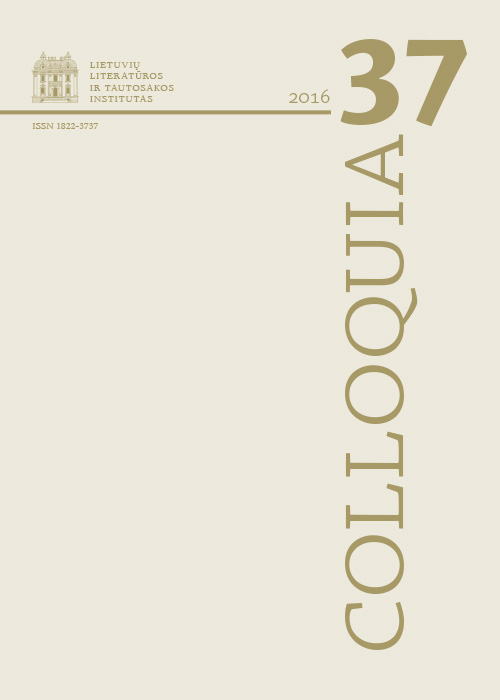The Dynamic of Maironis’s Canonization in Lithuanian Literary Criticism of the First Half of the Twentieth Century
Abstract
Drawing on the literary sociology principle that the position of a concrete author or text within a canon is the result of a socio-cultural selection process, this article seeks to determine which selection and communication factors and conditions led to the canonisation of the work of the Lithuanian national revival poet Maironis (1862–1932) in Lithuanian literary criticism of the first half of the twentieth century. Already during Maironis’s first period of canonisation, before the First World War, the dual nature of this poet’s assessment was evident in literary criticism: while professional literary critics considered Maironis’s contemplative, intimate lyric to be his strongest writing, they recognised that Maironis became a popular poet thanks to his patriotic poems. The identification of Maironis’s popular poetry’s role in the national revival as the essential criterion for evaluating his writing was emphasised by individuals not connected to literary studies – members of the Lithuania press; this determined the poet’s significance in the canon during the period under analysis. Although, following the restoration of statehood in 1918, younger critics began to question Maironis’s position within the contemporary literary canon, during the same period – in publications by the older generation of critics, in academic discourse and in school literature programs and textbooks – Maironis was both clearly established as a prophet of national revival and accorded the status of leading national classic.
Downloads
Most read articles by the same author(s)
- Aistė Kučinskienė, Viktorija Šeina, Saulius Vasiliauskas, Two Canonical Soviet Authors in the Post-Soviet Lithuanian School System: Petras Cvirka and Salomėja Nėris , Colloquia: Vol. 53 (2024): Colloquia
- Aistė Kučinskienė, Viktorija Šeina, Gitana Vanagaitė, Foreword , Colloquia: Vol. 53 (2024): Colloquia
- Viktorija Šeina , New Reconstruction of the Fragment of the History of Lithuanian Aesthetic Modernization , Colloquia: Vol. 43 (2019)
- Viktorija Šeina, About Maironis: An Anthology of Maironis Reception (1890–2010) , Colloquia: Vol. 39 (2017)
- Viktorija Šeina, Ieva Simonaitytė – Cultural Dialogue Mediator , Colloquia: Vol. 38 (2017)




